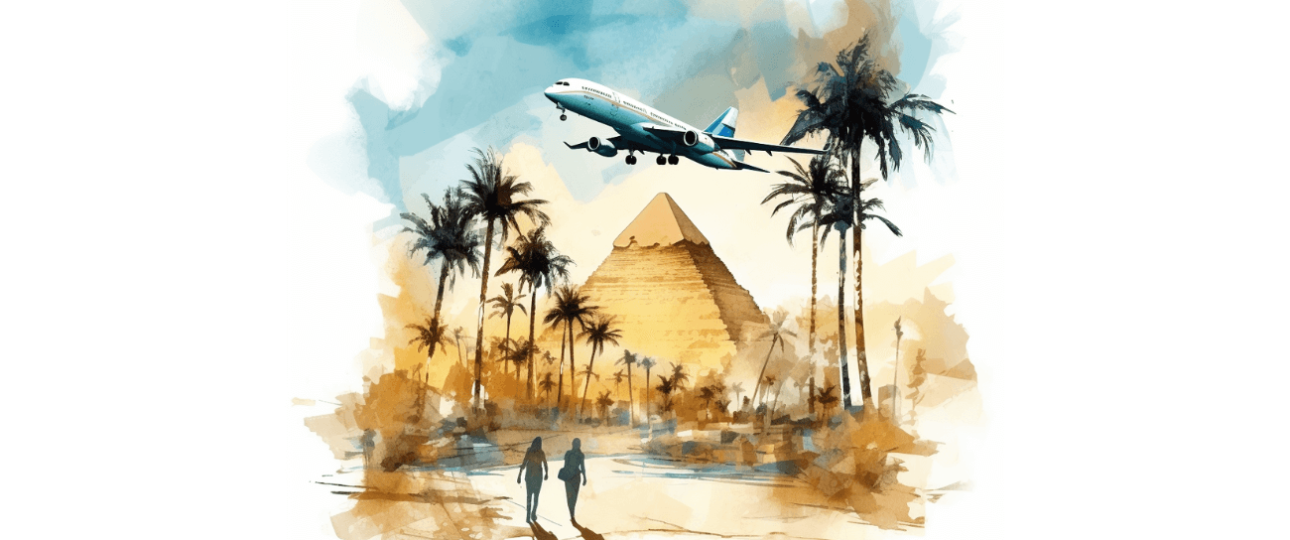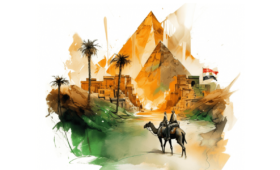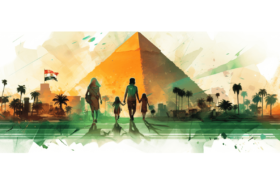Are you planning your next adventure to the timeless landscapes of Egypt? While the allure of the Great Pyramids of Giza, the mysteries of Luxor, and the serene Nile cruises make Egypt a top destination for travelers worldwide, there’s more to consider for a hassle-free journey. From savoring local delicacies without a hitch to mastering the art of Egyptian bartering, our guide to practical travel tips for Egypt ensures you’re well-prepared. Dive deep into the heart of this ancient land while armed with modern insights. Whether you’re a first-timer or a seasoned globetrotter, these tips will enhance your Egyptian experience, ensuring you capture its magic and practicalities.
Here are the most important Things to Know Before Traveling to Egypt.
When to go to Egypt
Best Time to Visit
- Weather: The ideal months to visit Egypt are from October to April. During these months, the weather is cooler and much more pleasant than the sweltering summer months. Days are sunny, and evenings can be chilly, so bring light layers.
- Crowds: Tourism peaks from December to February, so if you want to avoid the heavy crowds, consider visiting during the shoulder months of October, November, March, or April.
- We created a Guide to The Best Time to Visit Egypt. You can read it, before planning your trip.
Off-Peak Season in Egypt
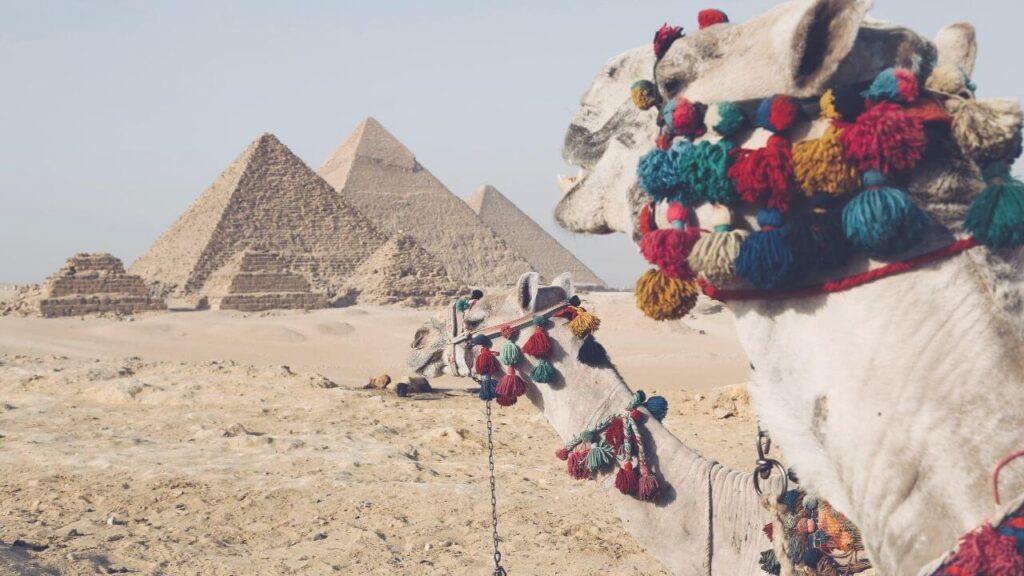
- Weather: From May to September, Egypt experiences its hottest months. Temperatures can soar, especially in Luxor and Aswan. However, the Red Sea resorts like Sharm El Sheikh and Hurghada have milder weather.
- Advantages: Fewer tourists, meaning you might have sites almost to yourself. Hotels and tours might offer discounts.
Special Events
- Ramadan: Traveling during Ramadan can be a unique experience as you witness the fasting rituals and nightly celebrations. However, keep in mind that many restaurants and shops might have altered hours or be closed during the day. Always show respect by avoiding eating, drinking, or smoking in public during daylight hours.
- Local Festivals: Events like the Sun Festival in Abu Simbel, where the sun illuminates the temple’s inner sanctum, are incredible to witness. Research local events for a special touch to your journey.
Insider Tips
- Nile Cruises: These are popular between October and April, but be sure to book in advance during peak seasons.
- Red Sea Resorts: If you’re primarily interested in beach vacations, the winter months (especially December and January) can be a bit cool for swimming, but the spring and fall are delightful.
- Siwa Oasis: This gem is often overlooked but offers a unique desert experience. The best time to visit is from October to February.
Lesser-Known Facts
- Khamaseen: A wind phenomenon that occurs typically between March and May, bringing sandstorms and higher temperatures. It’s good to be aware of this if you have respiratory issues or simply want to avoid hazy days.
- Alexandria’s Microclimate: The Mediterranean city has a different climate compared to the rest of Egypt. It’s cooler, especially during the summer, making it a nice escape from the heat of the inland cities.
- Zar Ceremony: Rarely mentioned on mainstream sites, this spiritual and therapeutic ritual is an age-old tradition in Egypt. It’s primarily a women’s gathering aiming to appease spirits. Though not a tourist event, if you get to witness or learn about it, it offers deep insight into Egyptian culture.
What to visit in Egypt
The Pyramids of Giza and the Sphinx
- Insider Tip: Arrive early to avoid the crowds and the heat. If you’re keen on entering the pyramids, be aware that the inner chambers can be claustrophobic and hot. While camel rides are popular, ensure you agree on a price beforehand and that the animals are treated well.
Luxor & The Valley of the Kings
- Experience: Luxor Temple, Karnak Temple, and the Valley of the Kings are a must-visit. The tombs are adorned with intricate hieroglyphics and artwork.
- Lesser-Known Fact: The Valley of the Artisans (Deir el-Medina) is where the workers who built the tombs lived. It offers a unique perspective on ancient Egyptian daily life.
Aswan
- Experience: The Philae Temple, dedicated to the goddess Isis, and the Unfinished Obelisk are impressive sites.
- Insider Tip: Consider a traditional felucca ride on the Nile in the late afternoon. The gentle breeze and sunset view are unforgettable.
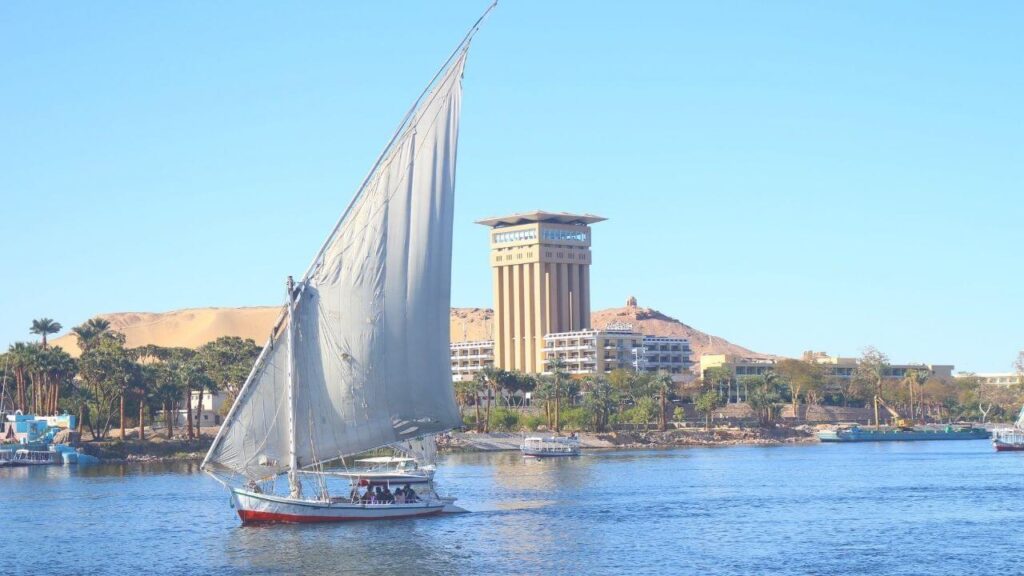
Abu Simbel
- Experience: This temple, dedicated to Ramses II, was relocated piece by piece to save it from the rising waters of Lake Nasser.
- Traveler’s Note: It’s a bit remote, but many tours offer flights or drives from Aswan. Witnessing the grandeur of the colossal statues is worth the journey.
Alexandria
- Experience: The Catacombs of Kom El Shoqafa, Qaitbay Citadel, and the modern Bibliotheca Alexandrina.
- Lesser-Known Fact: The Montaza Palace gardens are a serene escape from the bustling city and often missed by tourists.
White Desert National Park
- Insider Experience: Surreal rock formations and landscapes that look like something from another planet. Camping under the stars here is ethereal.
- Traveler’s Note: Ensure you go with a reputable tour operator. It’s a protected area and requires appropriate permissions.
Red Sea Resorts: Sharm El Sheikh & Hurghada
- Experience: World-class diving and snorkeling.
- Insider Tip: Many diving spots, like the Thistlegorm wreck, are best suited for advanced divers. Ensure you choose sites that match your skill level.
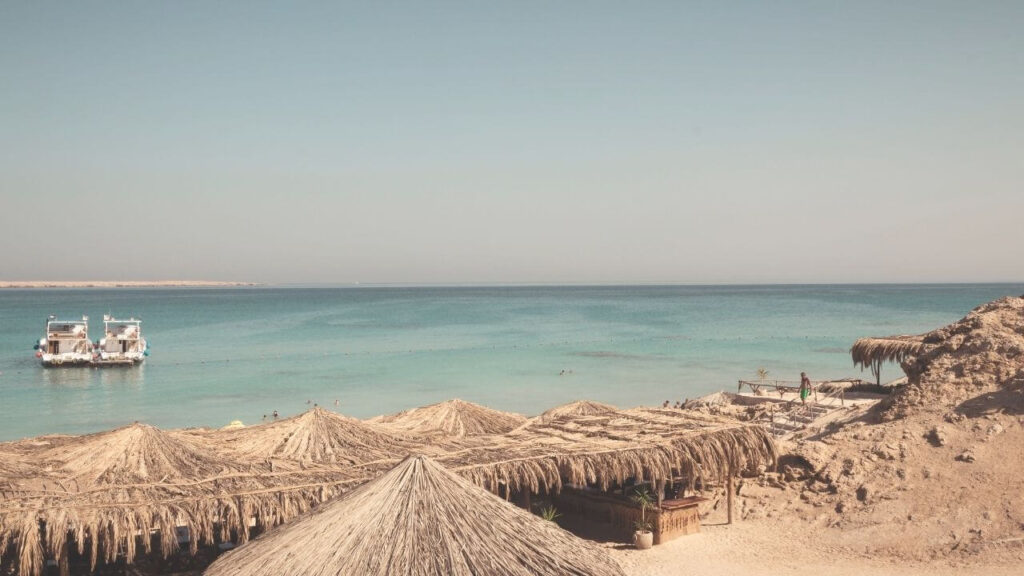
Siwa Oasis
- Insider Experience: Nestled in the Western Desert, this tranquil town is known for its ancient Oracle Temple, salt lakes, and unique culture.
- Important: Traveling to Siwa usually involves a long drive through the desert. Make sure your vehicle is well-equipped and you have a knowledgeable guide.
Cairo’s Historic District
- Experience: The Egyptian Museum, Khan El Khalili Bazaar, and various ancient mosques.
- Lesser-Known Spot: Many overlook the Nilometer on Rhoda Island, an ancient structure used to measure the Nile’s water level, offering insight into Egypt’s historic relationship with the river.
Nubian Villages near Aswan
- Insider Experience: Witness colorful houses, meet warm locals, and immerse in a culture that has preserved its distinct identity.
- Traveler’s Note: Respect local customs. While the Nubian people are hospitable, it’s crucial to ask permission before taking photos.
How to get to Egypt
One of the essential things to know before traveling to Egypt is how to get there.
Getting to Egypt is relatively straightforward due to its popularity as a travel destination. Here’s a guide based on experiences:
By Air
- Main International Airports:
- Cairo International Airport (CAI): The largest and busiest, connecting Egypt to all major international destinations.
- Luxor International Airport (LXR): Useful if you’re heading straight to the historical sites in Luxor.
- Sharm El Sheikh International Airport (SSH): Ideal for those heading directly to the Red Sea resorts.
- Hurghada International Airport (HRG): Another gateway to the Red Sea.
- Experience Tip: If you’re flying into Cairo, be prepared for potential crowds and long immigration lines, especially during peak tourist season. Having a pen handy for the immigration form is a small but useful tip.

By Land
- From Israel: The Taba border crossing is the primary entry/exit point for those traveling between Israel and Egypt. It’s near the Red Sea resort town of Eilat in Israel and connects to Sharm El Sheikh and the Sinai Peninsula in Egypt.
- Experience Tip: Overland travel can be time-consuming with checks and paperwork. Ensure your visa requirements are in order before attempting an overland crossing.
- From Sudan: The Qustul-Ashkeet border crossing allows entry from Sudan into Egypt. If you’re considering this route, remember it’s quite remote and the journey includes a ferry across Lake Nasser.
- Insider Note: The overland route between Egypt and Sudan traverses the desert and requires careful planning. It’s best undertaken with a knowledgeable guide or tour operator.
By Sea
- Ports: Major ports like Alexandria and Port Said sometimes serve Mediterranean cruise ships.
- Experience Tip: If arriving by cruise, check if the cruise line offers expedited immigration procedures for its passengers.
Visa and Entry Permission
Tourist Visa
- US citizens traveling to Egypt for tourism purposes typically need a tourist visa to enter the country.
- You can obtain a tourist visa in advance at the Egyptian Embassy or Consulate in the United States. It’s recommended to apply for the visa before your travel.
- Tourist visas are usually issued for single or multiple entries and are valid for various durations, such as 30 days or 90 days.
Visa on Arrival
- US citizens can also obtain a tourist visa upon arrival at Egyptian airports, including Cairo International Airport, for a fee. This option is convenient if you haven’t obtained a visa in advance.
- The visa on arrival is typically for a single entry and allows you to stay for up to 30 days. You may be able to extend your stay for an additional 30 days once you’re in Egypt.
Passport Validity
- Ensure that your passport is valid for at least six months beyond your planned departure date from Egypt.
Visa Fees
- Visa fees can vary based on the type of visa and the duration of your stay. Check with the Egyptian Embassy or Consulate for the most up-to-date fee information.
Currency for Visa Fees
- Visa fees in Egypt are usually payable in US dollars, so it’s advisable to carry some USD in cash for this purpose.
Entry Stamps
- Upon entry into Egypt, you’ll receive an entry stamp on your passport. Make sure to keep your passport with you at all times during your stay, as you may be asked to present it for identification.
Visa Extensions
- If you wish to extend your stay beyond the initial visa duration, you can usually do so by visiting the immigration authorities in Egypt before your visa expires. Be sure to apply for an extension well in advance to avoid any overstay penalties.
Health Precautions
Before embarking on your journey to Egypt, it’s essential to prioritize your health and well-being. Here are some crucial health precautions to keep in mind for a safe and enjoyable trip:
Vaccinations
- Check with your healthcare provider or a travel clinic to determine if you need any vaccinations before traveling to Egypt. Standard recommended vaccinations may include hepatitis A and B, typhoid, and tetanus. Make sure your routine vaccinations are up-to-date as well.

Medications and Prescriptions
- Carry essential medications in their original packaging and ensure an ample supply to last your entire trip. Consider carrying a small first-aid kit with basic supplies.
- If you have specific medical conditions, consult your doctor before traveling and ask for a written prescription, including the generic names of your medications, in case you need to replace them during your trip.
Travel Insurance
Travelers often underestimate Travel Insurance, but it is one of the most important things to do before traveling to Egypt.
Invest in comprehensive travel insurance that covers medical emergencies, including evacuation if necessary. Ensure you have a copy of your policy and emergency contact numbers readily accessible.
Hydration and Sun Protection
- Egypt can be extremely hot and dry, so stay hydrated by drinking bottled water and using sunscreen with a high SPF. Protect yourself from the sun by wearing a wide-brimmed hat and sunglasses.
Food and Water Safety
- Be cautious about street food and tap water. Stick to bottled water and eat at reputable restaurants to avoid foodborne illnesses.
Mosquito Protection
- Depending on the time of year and region you visit, there may be a risk of mosquito-borne diseases like malaria or dengue fever. Pack insect repellent, long-sleeved clothing, and consider using a bed net.
By following these health precautions, you can help ensure a safe and enjoyable travel experience in Egypt. Remember that your well-being should always be prioritized while exploring this beautiful and historic destination.
Food & Drink
Egypt’s culinary landscape is as rich and diverse as its history. Every bite tells a story, and every sip carries the essence of its vibrant culture.
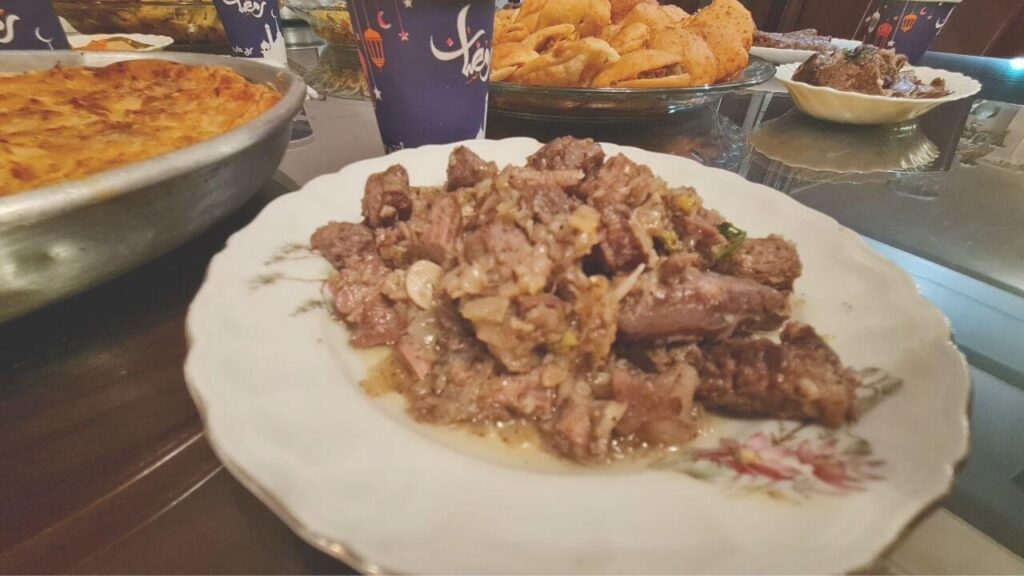
Traditional Dishes
Koshary: A flavorful blend of rice, lentils, pasta, and tomato sauce, topped with crispy fried onions, this dish is the very heart of Egyptian street food.
Molokhia: A green soup made from the jute plant, seasoned with garlic and coriander, often served with chicken or rabbit.
Foul (Ful Medames): Slow-cooked fava beans mashed with garlic, lemon, and olive oil. A staple breakfast item, it’s often paired with fresh bread.
Ta’miya (Falafel): Unlike its chickpea-based counterparts in other regions, Egyptian falafel is made primarily from fava beans, offering a unique taste and texture.
And so many more delicious dishes to try in Egypt. Whatever you order you will enjoy every single bite.
Beverages
Egyptian Tea: Typically black and served in a glass, it can be sweetened to taste. Sometimes, it’s flavored with fresh mint.
Qahwa (Coffee): Egyptian coffee is strong and traditionally served without milk. Its consistency is similar to Turkish coffee, with grounds settled at the bottom.
Sugar Cane Juice: A sweet, refreshing drink, usually enjoyed freshly pressed by street vendors.
If you are a coffee lover, we strongly suggest you try the Egyptian Qahwa. So a unique and strong flavor.
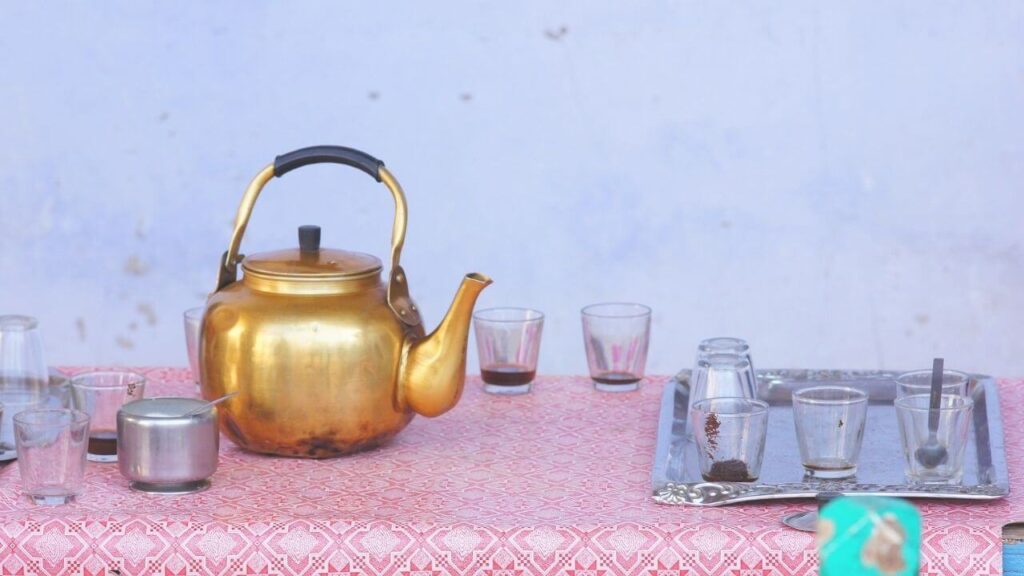
Local Dining Etiquette
When partaking in the Egyptian dining experience, a few cultural nuances can enhance your appreciation.
Right Hand Rule: Always use your right hand when eating, as the left hand is considered unclean.
Generosity in Offering: Egyptians are known for their hospitality. If food is offered, it’s polite to accept, even if it’s just a symbolic gesture.
Sharing is Common: Meals are often communal, with dishes placed in the center for everyone to share.
Drinking Water: For your health and safety, it’s advisable to drink bottled water instead of tap water when in Egypt. This precaution helps prevent any potential waterborne illnesses and ensures you stay hydrated with safe sources.
From rich, hearty meals to refreshing beverages, Egyptian cuisine offers an unforgettable feast for the senses. Whether you’re dining in a local home or a bustling market, embracing these culinary traditions and etiquettes can deeply enrich your Egyptian journey.
Tipping (Baksheesh)
In Egypt, the act of tipping, known locally as “Baksheesh,” is not merely a transaction but an integral part of the culture. It’s a gesture of appreciation, a nod to good service, and sometimes, a small act that smoothens everyday interactions.
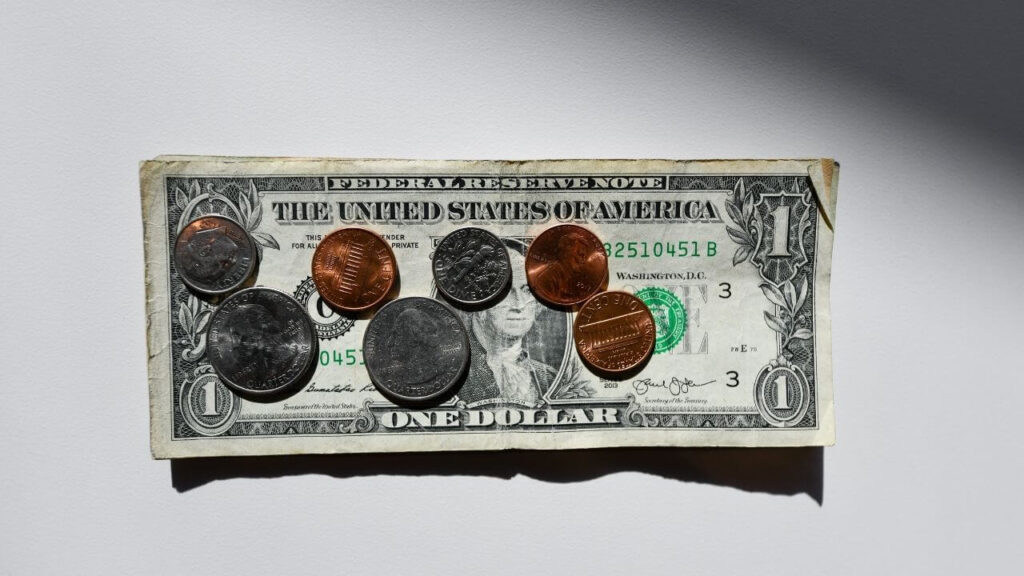
Common Practice
Tipping is widespread across various services in Egypt. Whether you’re dining at a local restaurant, being guided through the pyramids, or taking a cab to your next destination, a small tip is always appreciated.
Restaurants: It’s customary to leave a tip of around 10% to 15% of the bill unless a service charge is already included.
Tours: Tour guides, especially if they’ve provided an informative and engaging experience, typically expect a tip. The amount can vary based on the duration and quality of the tour.
Drivers and Tour Guides: Whether it’s a short taxi ride or a longer trip, rounding up the fare or adding a bit extra is a kind gesture. And it is also a gesture if you tip your tour guide.
Tipping in Egypt that Can Be Ignored
This can also be one of the essential things to know before traveling to Egypt. While tipping is a common practice in Egypt, there are certain situations where it’s perfectly acceptable to forego giving tips:
Watchmen at Monuments
Some individuals at popular tourist sites may offer to take your picture or provide unsolicited services. It’s generally acceptable to decline these offers without feeling obligated to tip. If you do decide to accept their assistance, a small tip is appreciated but not mandatory.
Children Offering Directions or any kind of service
Children might approach you and offer to guide you to a known destination or provide directions. While their help may seem friendly, it’s best to politely decline and rely on your own navigation or your hired guide’s expertise. Tipping these children is not expected.
Unsolicited Information
Locals who approach you and offer unsolicited information about sites and monuments or claim to show you hidden spots are often seeking a tip. It’s advisable to politely decline their services, especially if you already have a knowledgeable guide. Tipping in these situations is not necessary.
By being discerning about when and where you choose to give tips, you can manage your expenses more effectively while still respecting local customs and ensuring that your gestures of appreciation go to those who truly enhance your travel experience.
Money
Understanding the financial landscape of a country is crucial for any traveler. In Egypt, with its bustling bazaars and endless attractions, having a grasp on monetary matters can make your journey smoother and more enjoyable.
Currency
Egypt’s official currency is the Egyptian Pound, abbreviated as EGP. Notes come in various denominations, from smaller bills like 5, 10, and 20 to larger ones like 100 and 200 pounds.
Using ATMs
Availability: ATMs are widespread in cities and major tourist areas. However, their presence may be limited in remote regions or smaller towns.
Charges: While many ATMs offer competitive exchange rates, it’s essential to be aware of fees. Both local bank charges and your home bank may apply fees for international withdrawals.
Credit Cards
Most high-end hotels, restaurants, and shops in tourist areas accept credit cards. However, in local markets, smaller establishments, and off-the-beaten-path locations, cash remains king.
It’s always wise to ask in advance if credit cards are accepted to avoid any inconveniences.
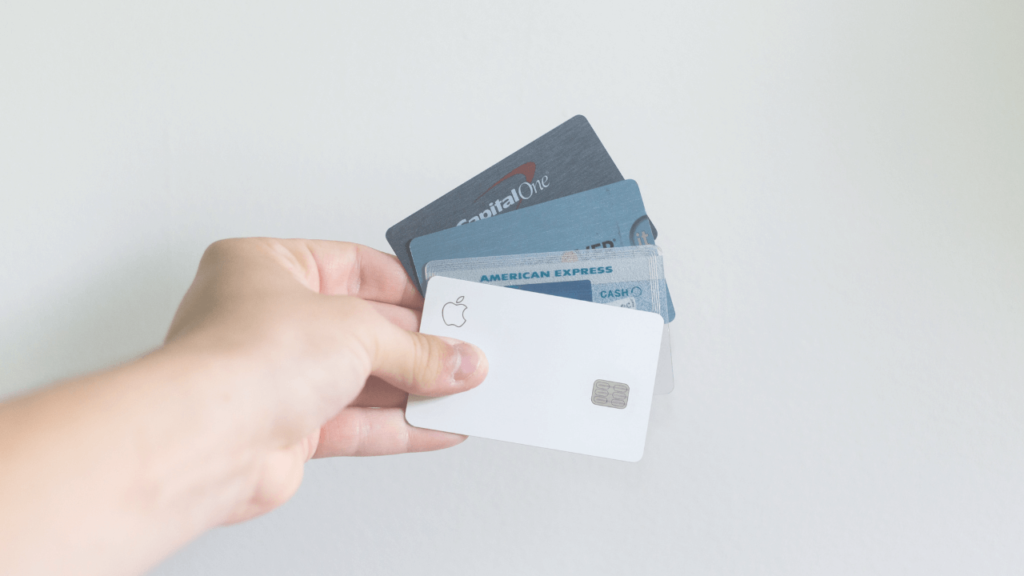
Best Practices for Carrying and Exchanging Money
Diversify: Don’t rely solely on one form of payment. Carry a mix of cash, credit cards, and even a backup card if possible.
Local Exchange: While many places offer currency exchange, banks and official exchange bureaus typically provide the best rates. Avoid exchanging money at airports if you can, as the rates there tend to be less favorable.
Safety First: Always be cautious with your money. Use hotel safes for excess cash and valuable items, and only carry what you need for the day.
Small Bills: Keeping smaller denominations is handy for tips, local transportation, and small purchases.
By being financially savvy and staying informed, you can ensure your Egyptian adventure is as seamless as it is mesmerizing, allowing you to focus on the beauty and history that surround you.
Time Zone in Egypt
Egypt Standard Time (EET)
When setting your watch to Egyptian time, align it to the Egypt Standard Time, which operates at UTC +2. This means if it’s noon in Coordinated Universal Time (UTC), it’s 2 PM in Egypt.
Daylight Saving
Unlike some regions that adjust their clocks for the longer days of summer, Egypt keeps it simple. Daylight saving time is not observed, meaning the time remains consistent throughout the year, regardless of the season.
Shopping
Treasures of the Nile: Shopping in Egypt
Embarking on a shopping adventure in Egypt is like diving into a rich tapestry of history, culture, and artistry. From vibrant bazaars to unique souvenirs, the Egyptian marketplace promises a memorable experience.
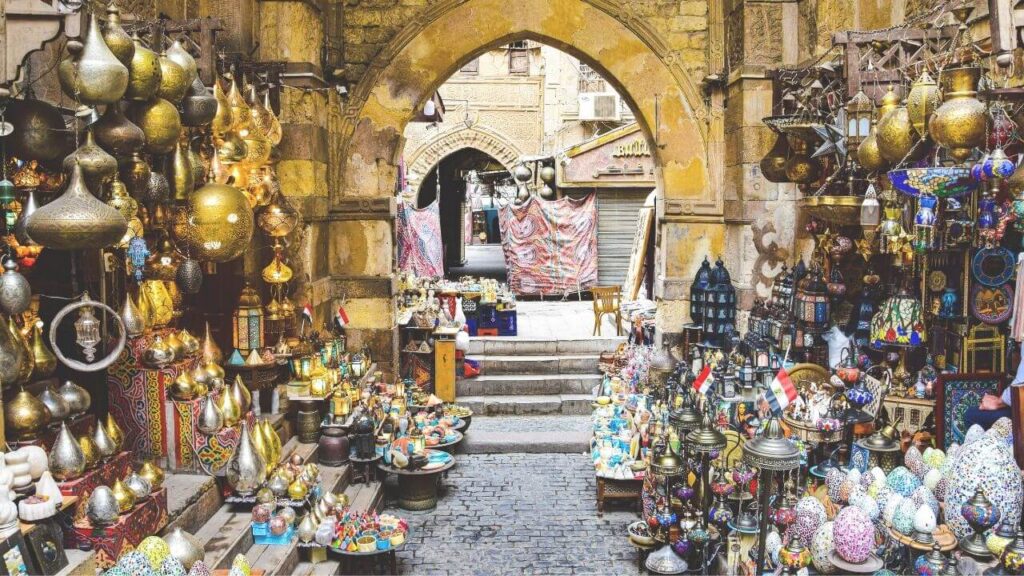
Famous Markets
One of the most iconic shopping destinations is Khan El Khalili in Cairo. Wandering its labyrinthine alleys, you’ll be transported to an age-old world of traders, artisans, and goldsmiths, with the market’s history tracing back to the 14th century.
Bargaining: The Art of the Deal
Common Practice: In many Egyptian markets, fixed prices are a rarity. Instead, bargaining is not only expected but is a cherished tradition. It’s a dance of words and wits, a playful interaction between buyer and seller.
Tips for Effective Bargaining
- Start by quoting a price that’s lower than what you’re willing to pay, giving you some negotiation room.
- Be patient and enjoy the process; sometimes, the conversation is just as valuable as the purchase.
- If you feel the price isn’t right, it’s okay to walk away. Often, this can lead to a better offer.
Popular Souvenirs
Papyrus Paintings: Depicting ancient Egyptian scenes and hieroglyphs, these are a beautiful reminder of the country’s rich history.
Alabaster Vases: Hand-carved and often showcasing intricate designs, they are a testament to Egyptian craftsmanship.
Perfumes: Egypt is renowned for its exotic and enduring fragrances. You’ll find a plethora of scents, from musk to jasmine.
Jewelry: With a history steeped in gold and precious gems, it’s no surprise that Egyptian jewelry makes for a cherished keepsake.
A Word of Caution: While the allure of taking home a piece of ancient Egypt is tempting, be wary of fake antiquities. Not only is it illegal to export genuine ancient artifacts, but the market is also rife with counterfeits. It’s always best to purchase from reputable sources and seek certifications of authenticity when in doubt.
With its mesmerizing array of goods and the thrill of haggling, shopping in Egypt is more than just a transaction; it’s a journey through time and tradition. Embrace the experience, and you’ll undoubtedly return home with treasures that tell tales of their own.
Tourist traps that you should avoid
While Egypt offers an abundance of historical treasures and cultural experiences, it’s important to be aware of potential tourist traps that can hinder your travel experience. Here’s a crucial tip to keep in mind:
Make Sure Your Prices are Set Before You Do Anything
Before engaging in any service or purchase, especially in tourist areas, ensure that prices are agreed upon and set in advance. Negotiation is common in Egypt, so be clear about the cost of goods, services, and tours to avoid unexpected charges or haggling hassles later on.
This simple precaution can help you navigate the vibrant markets and attractions of Egypt with confidence and ensure a more enjoyable and budget-friendly trip.
Language
Official Language
Arabic reigns as the official language, enveloping the country in a rich tapestry of sounds and scripts that have been its signature for centuries.
English Proficiency
While the haunting hieroglyphs of ancient Egypt may capture your imagination, English speakers can find solace in most tourist hubs, where English is commonly spoken and understood. However, as you venture into the less-trodden paths and remote areas, this proficiency dwindles.
Diving Deeper with Arabic
For those yearning for a richer, more immersive Egyptian experience, mastering a few basic Arabic phrases can be invaluable. Not only does it pave the way for smoother interactions, but it also bridges the cultural gap, allowing travelers a glimpse into the heart of Egypt’s traditions and hospitality.
Travel Phrases
While many in Egypt’s tourist areas speak English, knowing a few Arabic phrases can immensely enhance your travel experience. It not only aids in smoother interactions but also showcases your appreciation and respect for the local culture.
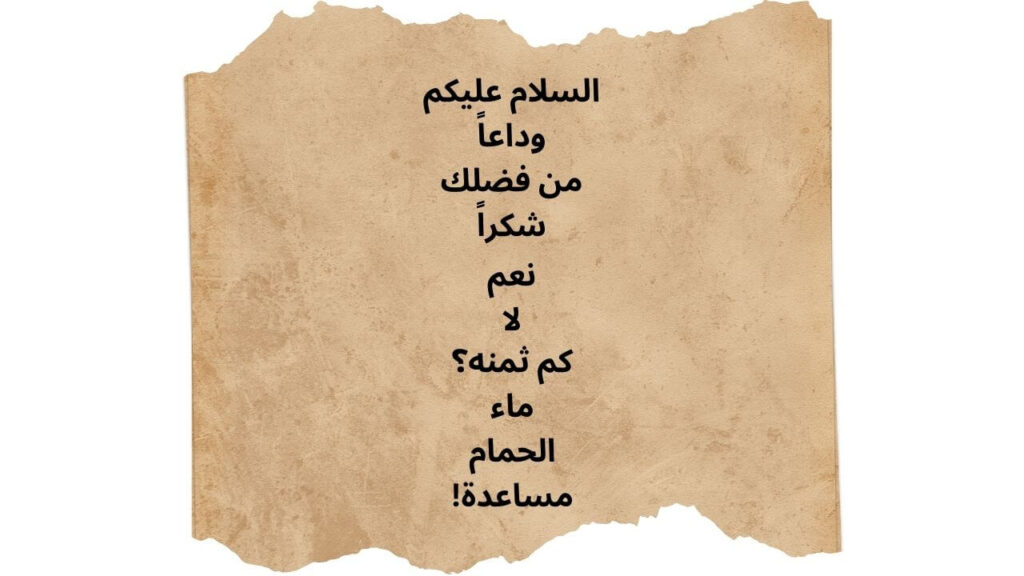
Commonly Used Arabic Phrases for Travelers
- Hello: السلام عليكم (As-salamu alaykum) – Pronounced: as-sa-la-mu a-lay-kum
- Goodbye: وداعاً (Wada’an) – Pronounced: wa-da-an
- Please: من فضلك (Min fadlik) – Pronounced: min fad-lik
- Thank you: شكراً (Shukran) – Pronounced: shuk-ran
- Yes: نعم (Na’am) – Pronounced: na-am
- No: لا (La) – Pronounced: la
- How much?: كم ثمنه؟ (Kam thamanuh?) – Pronounced: kam tha-ma-nuh
- Water: ماء (Maa’) – Pronounced: maa
- Bathroom: الحمام (Al-hammam) – Pronounced: al-ham-mam
- Help!: مساعدة! (Musa’ada!) – Pronounced: mu-sa-a-da
Cultural Context: When and How to Use Certain Phrases
Greetings: When you greet someone with “As-salamu alaykum,” it’s a warm gesture and the common response is “وعليكم السلام” (Wa alaykum as-salam), meaning “And peace be upon you too.”
Expressing Gratitude: Using “Shukran” after any form of service or kindness is always appreciated. The response you might hear is “عفواً” (Afwan), which means “You’re welcome.”
Polite Requests: Adding “Min fadlik” (Please) when asking for something denotes politeness and respect.
Haggling in Markets: When inquiring about the price of an item, “Kam thamanuh?” is your go-to phrase. Remember, bargaining is common, so don’t accept the first price provided!
Mastering these basic phrases not only equips you for day-to-day interactions but also acts as a bridge, connecting you to the heart and soul of Egypt. Even if your pronunciation isn’t perfect, locals usually appreciate the effort, seeing it as a sign of respect towards their language and culture. Happy conversing!
Safety Tips
Egypt, with its ancient pyramids and bustling bazaars, beckons travelers from all corners of the world. Like any popular tourist destination, it’s essential to be aware and respectful of local norms. With a few precautions, you can ensure your Egyptian adventure is as safe as it is unforgettable.
Staying Aware in Crowded Areas
Pickpockets: Like many global tourist hotspots, crowded areas can be a haven for pickpockets. Keep your belongings secure, consider using a money belt, and always be cautious of your surroundings, especially in dense places like markets or public transportation.
Distractions: Scammers might work in teams, where one distracts you while another swipes your belongings. If someone seems overly persistent or tries to divert your attention, it’s essential to stay alert and keep a firm hold on your possessions.
Dress Code: Dressing with Respect
Religious Sites: When visiting mosques or other religious venues, dress conservatively. For women, this often means covering their hair with a scarf, wearing long skirts or pants, and covering their arms. Men should also opt for long pants and avoid sleeveless shirts.
Rural Areas: In less touristy and more traditional areas, modesty is key. Both men and women should wear clothing that covers their legs and shoulders.
General Tip: Lightweight, breathable materials are recommended due to Egypt’s warm climate, but ensure they are not overly revealing.
Respect for Local Customs and Traditions
Greetings: When meeting locals, a handshake is the typical form of greeting. Remember, always use your right hand for handshakes or giving and receiving items, as the left hand is considered unclean in many Middle Eastern cultures.
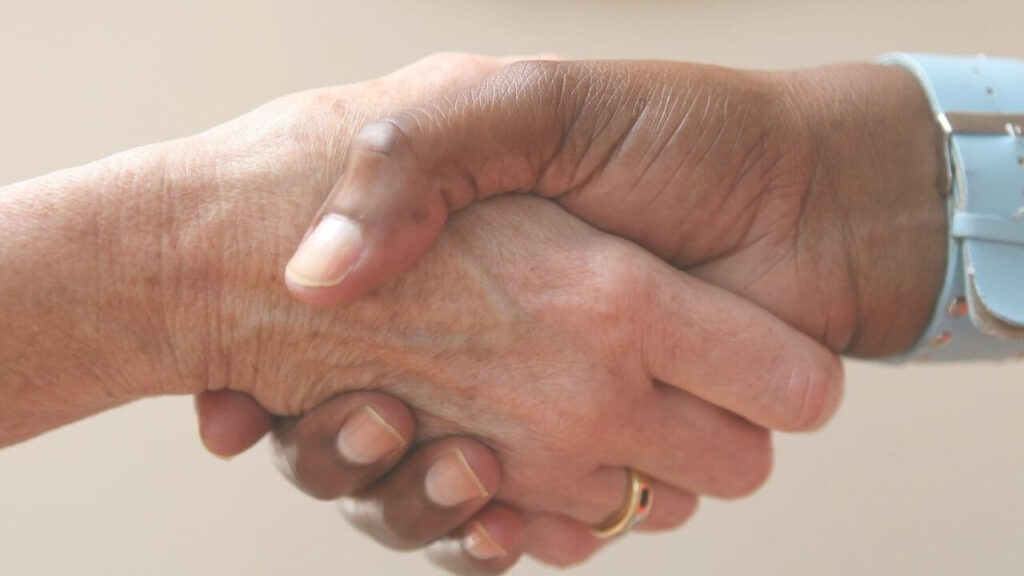
Public Displays of Affection: It’s best to be conservative in public. Holding hands is generally acceptable, but more intimate displays of affection should be reserved for private settings.
Photography: Always ask for permission before taking photos of people, especially in rural areas or at religious sites. Some locations may also require a fee or prohibit photography altogether.
Transportation
Navigating through Egypt, you’ll find a mosaic of transportation options catering to various preferences and budgets. Whether you’re taking a scenic train ride or haggling with a taxi driver, understanding the Egyptian transport system ensures a smoother travel experience.
Overview
Buses: Often the most economical option, buses connect major cities and tourist destinations. There are both government-run and private bus companies, with the latter often offering more luxurious travel options.
Trains: Egypt’s railway system is one of the oldest in Africa. Trains, especially the overnight ones connecting Cairo to Luxor and Aswan, are popular among tourists. Opt for first or second-class tickets for a more comfortable journey.
Domestic Flights: For those short on time or wanting to skip long road or rail journeys, domestic flights can be a boon. EgyptAir operates frequent flights between major destinations, ensuring you can hop from Cairo to Sharm El Sheikh or Luxor with ease.
Taxis: Navigating the Streets
Negotiating Fares: Most taxis in Egypt don’t run on meters, so it’s essential to agree on a fare before starting your trip. It’s not uncommon for initial prices to be inflated for tourists, so don’t hesitate to negotiate.
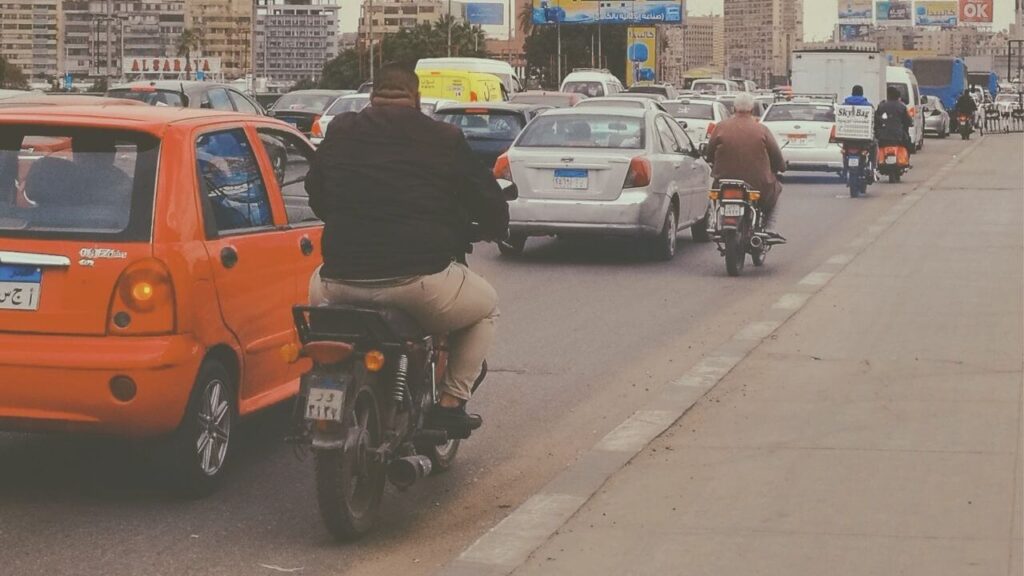
Avoiding Scams: Always opt for officially marked taxis and be cautious of overly persistent drivers offering unsolicited rides, especially at tourist sites and airports.
Tip: While ride-sharing apps like Uber and Careem operate in major cities like Cairo and Alexandria, they offer a standardized pricing structure, which can be an alternative to traditional taxis.
Renting Cars: Drive with Caution
Where: International and local rental agencies are available in cities and at airports. Ensure all necessary paperwork is in order and familiarize yourself with Egyptian driving norms.
When It’s Advisable: If you’re planning to venture off the beaten path or crave the flexibility of a self-drive journey, renting a car can be worthwhile. However, given Egypt’s driving culture and traffic, it’s often more comfortable for tourists to rely on taxis or hire a driver for longer trips.
Photography and Electronics
Chargers, Adapters, and Power Banks
Ensure you pack the necessary chargers, adapters, and power banks for your electronic devices. Egypt typically uses European-style Type C and Type F sockets, so having the right adapters is essential to keep your devices powered throughout your trip.
Respect Local Photography Rules and Privacy
Be mindful of local photography rules and respect people’s privacy. Always ask for permission before taking photos of individuals, especially in rural areas and at religious sites. Some locations may have restrictions or require a fee for photography.
Leave the Drone and Mics at Home
Egypt has strict regulations regarding the use of drones and microphones in public spaces. Leaving these devices at home is best to avoid any legal issues or disruptions during your travels.
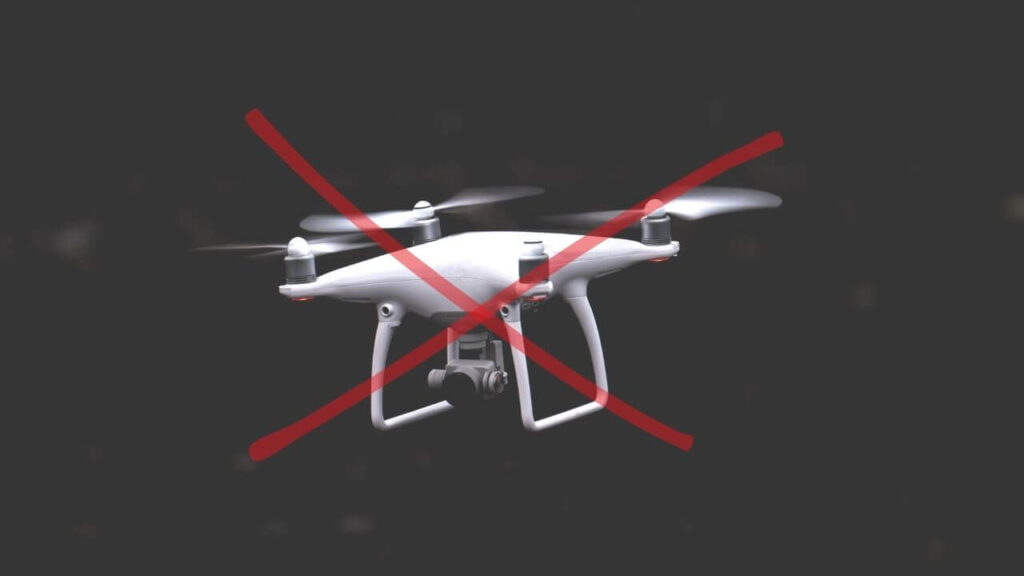
Stay Connected
In the age of digital nomads and on-the-go travel planning, staying connected is paramount. Egypt, with its blend of ancient allure and modern amenities, offers varied connectivity options for visitors keen on sharing their journey or staying updated on the go.
Internet Availability
Wi-Fi Hotspots: Most hotels, especially those catering to tourists, offer complimentary Wi-Fi. Cafes, particularly in major cities and tourist areas, also tend to provide internet access, making them ideal spots to relax and catch up online. However, the speed and reliability can vary.
Public Areas: Some tourist spots, major squares, and shopping malls might offer public Wi-Fi, but always be cautious when using open networks and avoid accessing personal or sensitive information.
Instal Whatsapp:
Before your trip, make sure to download WhatsApp and have a stable internet connection to set it up. Once you’re in Egypt, you can connect to Wi-Fi hotspots in hotels, cafes, and public areas to stay in touch with your loved ones and make the most of your Egyptian adventure.
WhatsApp is widely used in Egypt for text messaging and voice and video calls.
SIM Cards: Keeping in Touch
For Tourists: Several mobile providers cater to tourists with special packages. The major ones include Vodafone, Orange, and Etisalat. These SIM cards can be purchased at kiosks in the airport or official stores in cities.
Buying a SIM: You’ll typically need a copy of your passport and a passport-sized photo. Tourist-specific plans often offer a mix of local and international calling minutes, SMS, and data. Data packs can be recharged easily at local shops or online.
Emergency Numbers: Be Prepared
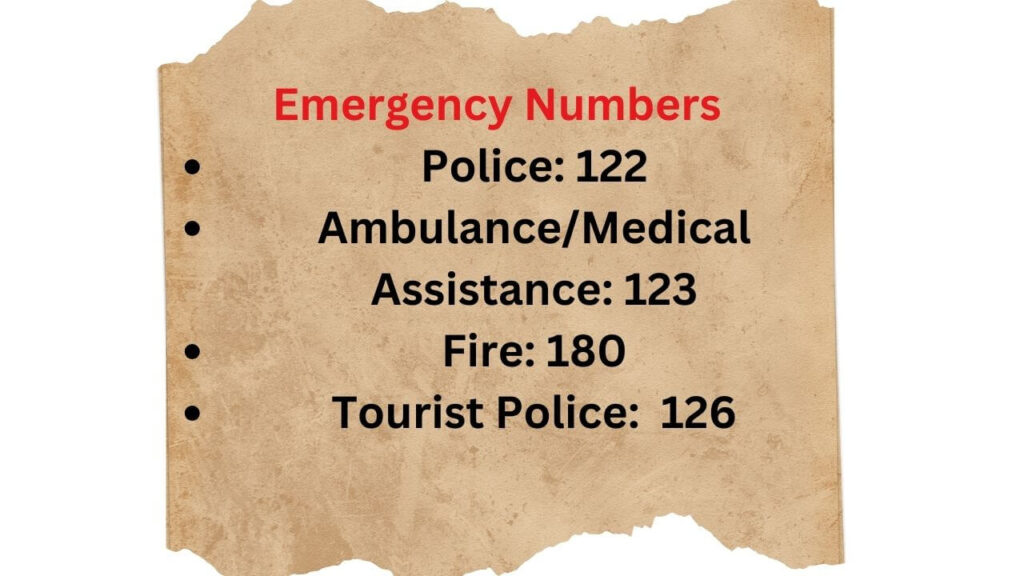
- Police: 122
- Ambulance/Medical Assistance: 123
- Fire: 180
- Tourist Police: Designed especially to assist tourists, you can reach them at 126. They often have English-speaking officers.
Other Things to Know Before Traveling to Egypt
Public Bathrooms in Egypt
While exploring the vibrant streets of Egypt, you might find yourself needing to use public restrooms. Here are some tips and insights to ensure a smooth experience:
The Bathroom Will Cost You
In Egypt, public restrooms often come with a small fee for maintenance. It’s a common practice for attendants to request a small tip in exchange for access. Be prepared with some small changes (Egyptian pounds) for this purpose.
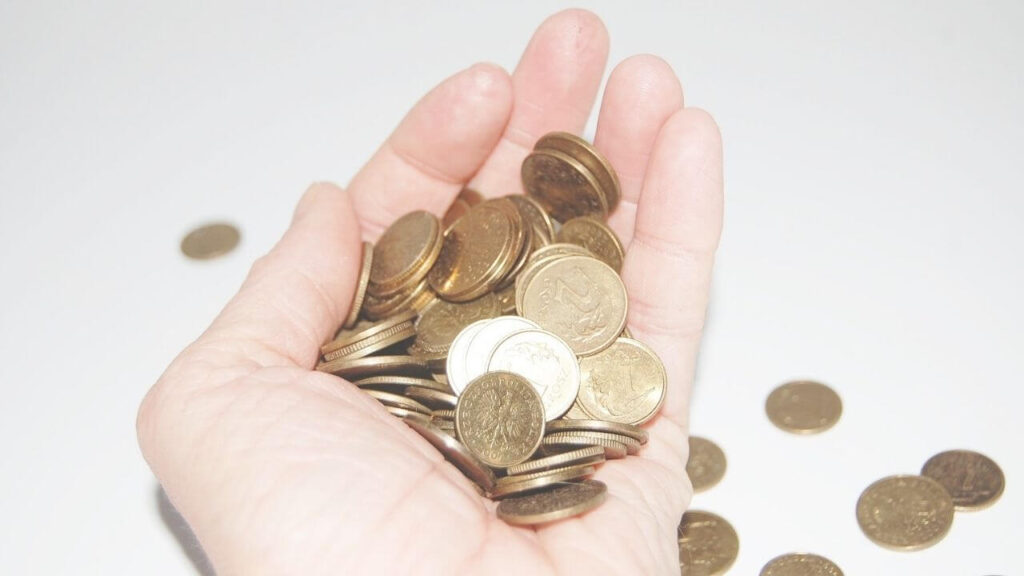
Toilet Paper
It’s advisable to carry some toilet paper or tissues with you, as not all public restrooms provide them. Travel-sized packs can be handy for this purpose.
Restroom Conditions
Keep in mind that the cleanliness and condition of public restrooms can vary. While some may be well-maintained, others may not meet the same standards you’re used to. Having hand sanitizer or wet wipes can be helpful.
Handwashing
Always carry hand sanitizer or soap, as not all restrooms will have facilities for handwashing.
Paid Restrooms at Tourist Sites
At popular tourist sites, you may encounter attendants who charge a fee for using the restroom facilities. This fee usually ensures a cleaner and more well-maintained restroom.
Conclusion
Navigating the mesmerizing landscapes of Egypt goes beyond just plotting destinations on a map; it’s about embracing the heartbeat of its age-old traditions and understanding its modern nuances. Things to know before traveling to Egypt include recognizing the importance of cultural sensitivity and local customs, such as dressing modestly and respecting religious traditions. With the right travel tips in your arsenal—from mastering the art of haggling in Khan El Khalili to sipping Egyptian tea with the correct etiquette—you’re not just a tourist but a conscientious traveler. Every stone, alley, and market stall has a story in the land where Pharaohs once reigned. As you pack your bags and bookmark these essential travel tips for Egypt, remember: the deeper your connection to its customs, the richer your Egyptian journey will unfold. Dive into Egypt’s grand tapestry with informed footsteps and revel in the beauty of informed immersive travel. Safe adventures in the heart of the Nile!

